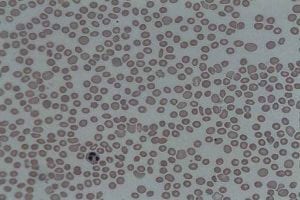SELLAS has just announced that patient screening has begun for a Phase 3 trial for acute myeloid leukemia (AML). The trial is examining the effects of GPS for patients who have, after receiving their second-line anti-leukemic therapy, reached complete remission. The trial is called REGAL.
GPS has already been granted Orphan Drug Designation by the FDA and the EMA as well as Fast Track Designation by the FDA. It is a therapy that has shown to be effective for reducing the chance of recurrence- either delaying it or preventing it all together. It’s been studied in AML patients who have a high risk of relapsing, which truly shows the potential power of this therapy.
Previous Studies
In the Phase 2 CR2 study, there was a median overall survival of 16.3 months compared to just 5.4 months for those patients who were untreated. That means there was an overall benefit of 10.9 months.
Another study of patients who had reached their first complete remission, had an overall survival rate of 47% at 3 years after treatment with GPS began.
Adverse events in these studies were limited to injection site reactions and one transient leukopenia.
REGAL Study
The REGAL trial is a randomized and open label investigation which will compare GPS to standard treatments for AML patients in remission. It will include patient who have had both CR2 or CR2p. All patients in the trial will have had second-line antileukemic therapy and be unable or ineligible to receive a stem-cell transplant.
The primary endpoint of this investigation is overall survival of participants, starting from the time the trial is initiated.
Secondary endpoints for this trial are-
- leukemia-free survival
- t-cell immune response
- residual disease
- AML clonal evolution
- inflammasome signatures in the bone marrow
This trial will enroll around 116 AML patients in total. It will occur at 50 trial sites across both the United States and Europe. The company expects that by the fourth quarter of next year (2021), they will have interim results of the safety of the therapy.
If the final results of the trial remain consistent with previous findings, they will be used to support the submission of the Biologics License Application to the FDA.
You can read more about this trial here.






